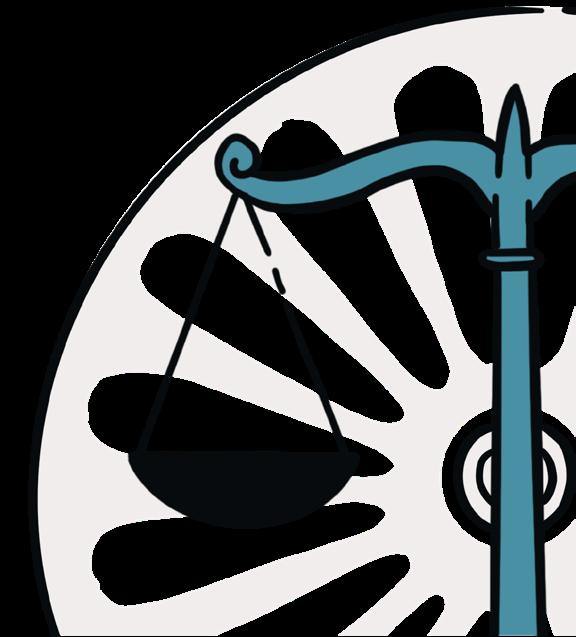




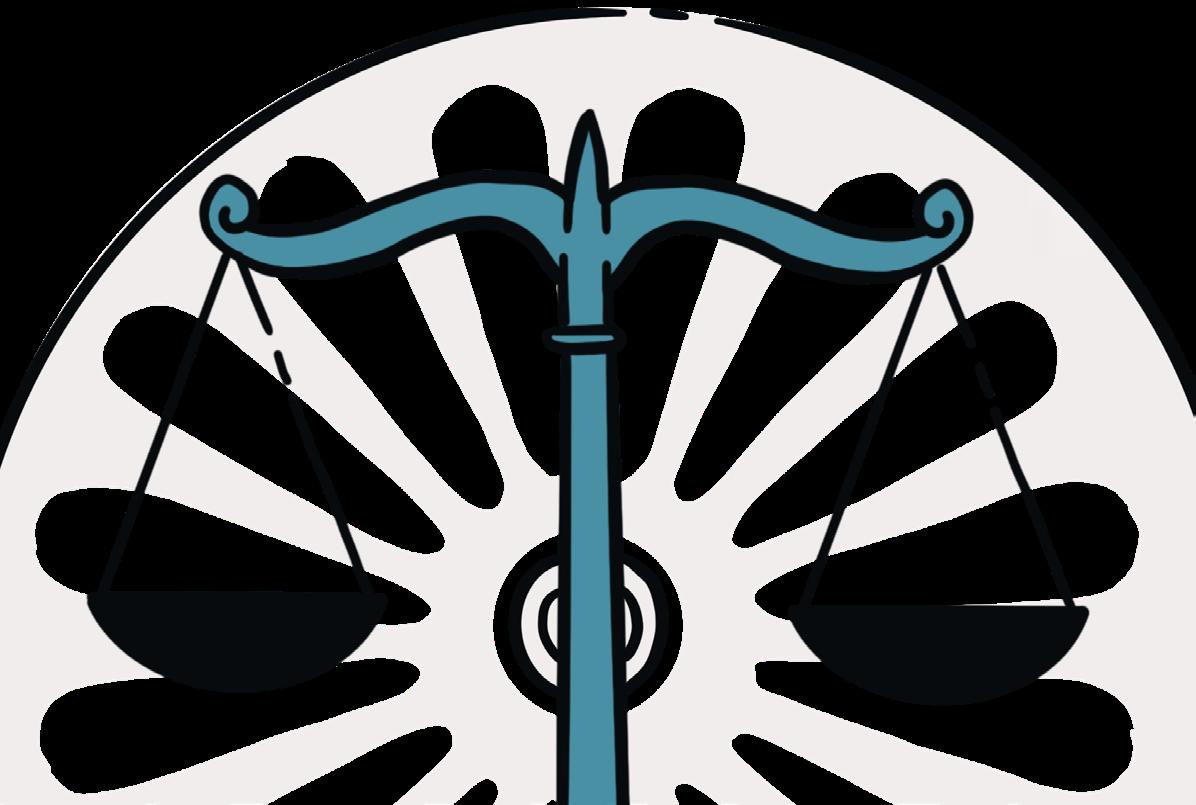
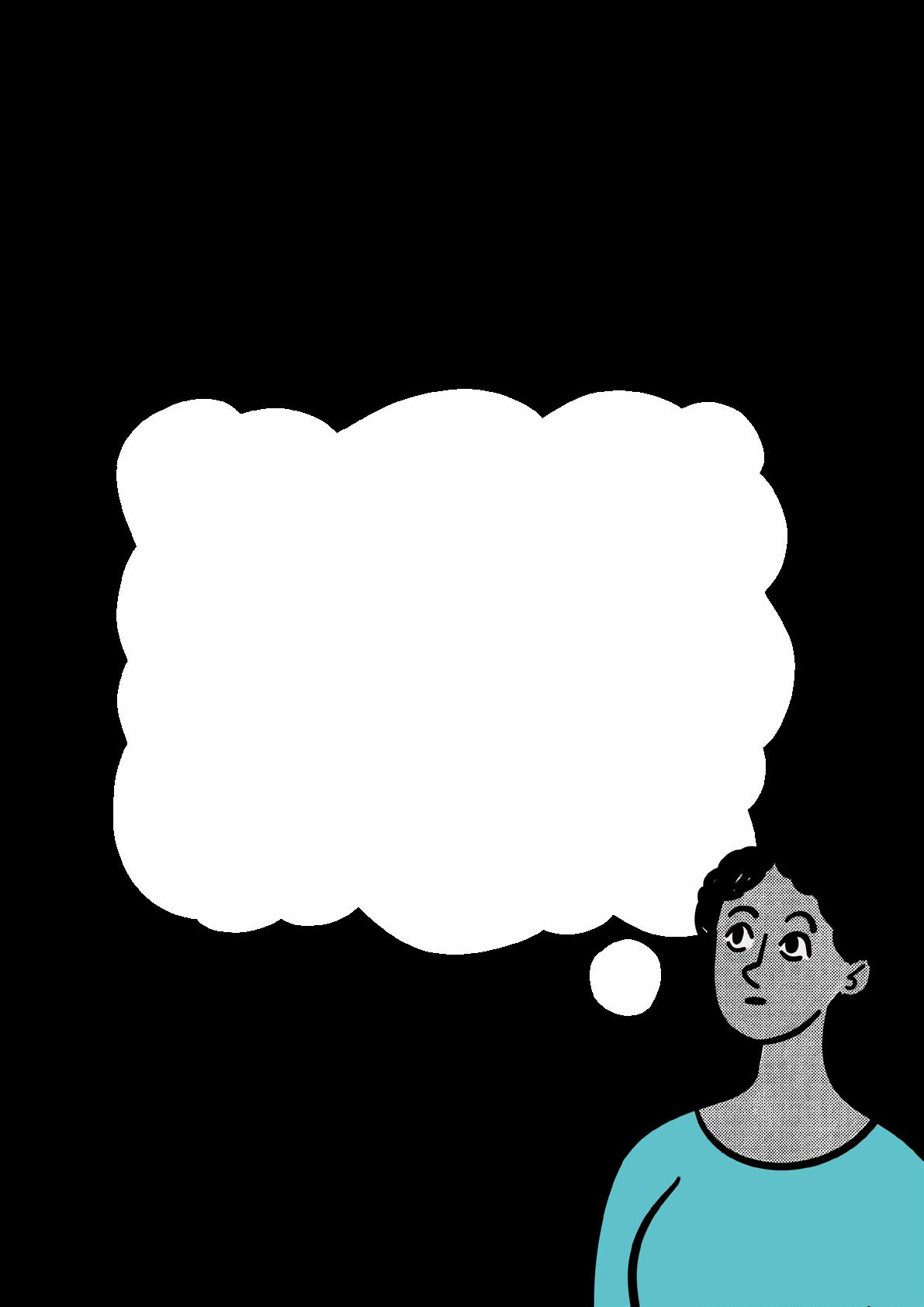
Many of us think we know about Gypsies and Travellers. Perhaps we think of crime and anti-social behaviour. People who are ‘tough and hard’, and always on the move.
But there are hidden stories that we don’t know. Gypsies and Travellers experience very high levels of discrimination across our society, including in the criminal justice system. But until now, very little is known about their experiences of crime on a large scale. This is important as Romany Gypsies and Irish Travellers are ethnic groups protected by the Equality Act 2010 which means they should not be discriminated against.
Realities Checked is a university-based research study that has been supported by Gypsy and Traveller organisations. Together, they have explored crime and justice experiences of Gypsies and Travellers in England since the 1960s. The aim is to give Gypsy and Traveller communities a voice so that their needs can be met in future policies.
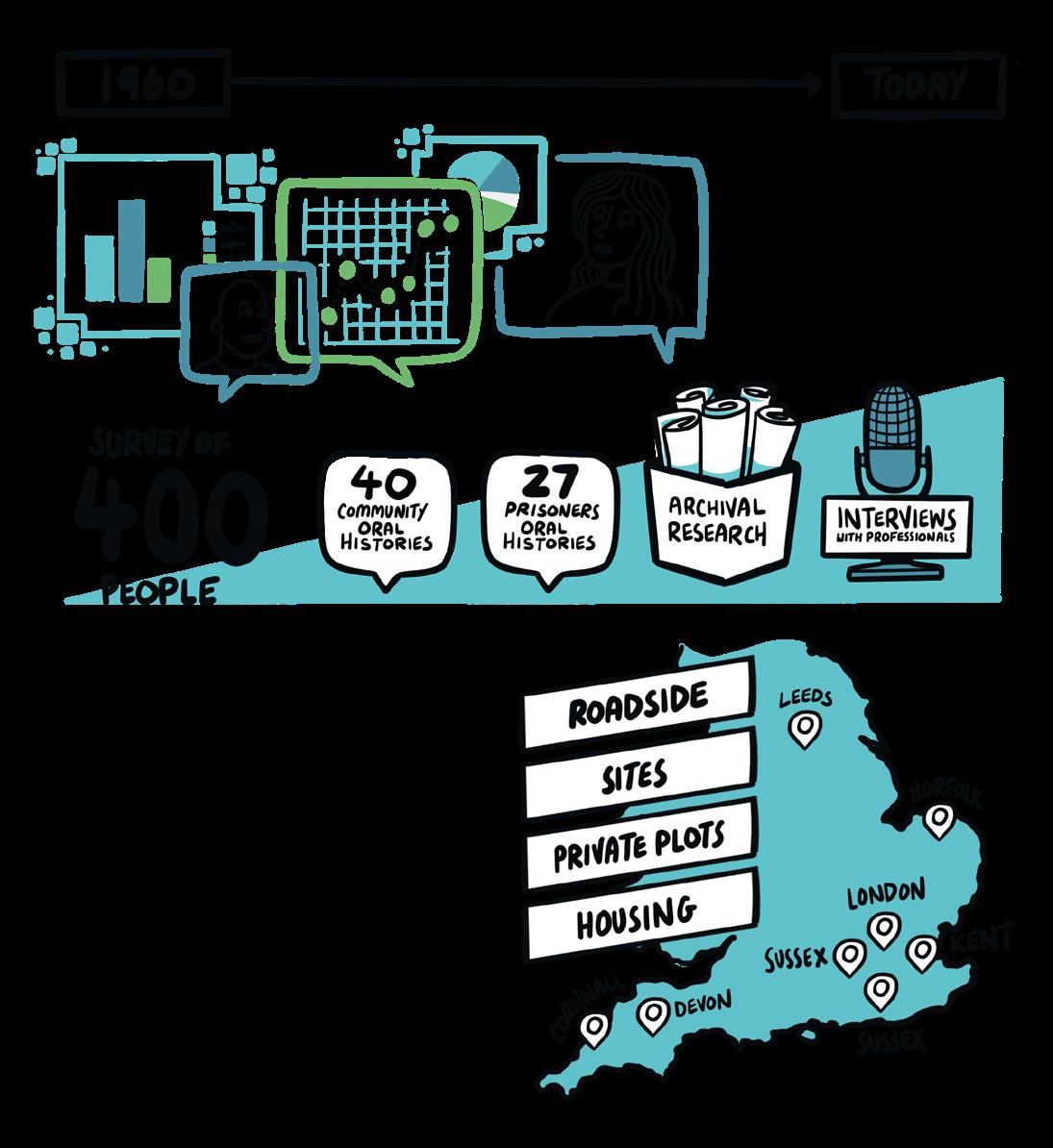
Gypsies and Travellers were more victimised by ALL types of crime when compared with the general population.
Gypsies and Travellers were more often a victim than White, Black, Asian and Mixed ethnic groups.
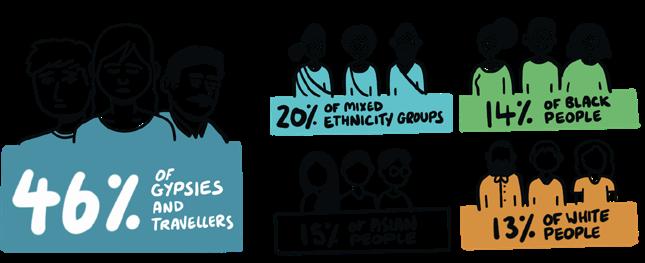
46% of Gypsies and Travellers said they had been a victim of crime in the last 12 months. This is more than double the rates of victimisation of other minority ethnic groups. This was the case for 20% of people who were of Mixed Ethnic or Multiple ethnicities, 15% who were Asian, 14% who were Black and 13% who were White (ONS 2020).
Gypsies and Travellers were more often a victim than White, Black, Asian and Mixed ethnic groups.

For Gypsies and Travellers in the crime survey, 11% of people surveyed said they had been a victim of a racially motivated hate crime in the last 12 months. This is more than 10 times the victimisation rate of AsianandBlackpeople.
Gypsies and Travellers often feel persecuted and alienated from society because of negative treatment over their lifetimes, including:
• Suffering racist abuse and violence as children and adults - including physical and arson attacks on their living vehicles when roadside.
• And then seeing their children and grandchildren also vulnerable to racist abuse and violence.
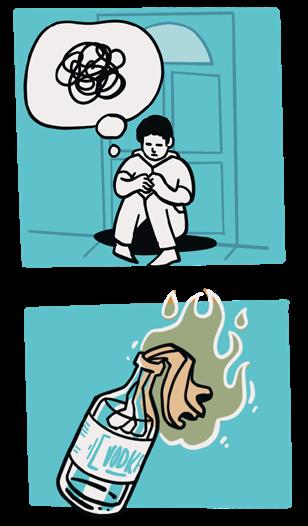
I have experienced a lot of poor mental health in my life, experienced a lot of low self-esteem, terrible anxiety where I couldn’t leave the house without feeling like people’s gonna, you know, feel like ‘Oh there he is, one of them [Gypsies]”
(Stefan, English Gypsy Traveller, 30s)
“He stuck a cloth into a vodka bottle, lit it, and threw at me. I was 10.”
(Dukes, Romany Gypsy, 30s)
Gypsies and Travellers have extremely low levels of trust in the police.
The criminalisation of Gypsies and Travellers’ lifestyle has meant that they often come into conflict with the police.
The study found there was use of aggressive policing tactics to control Gypsies and Travellers. Often, the police only seemed to see Gypsies and Travellers as offenders, rather than victims of crime.
‘I must have been stabbed... and the police automatically said ‘Well, if we hear that you’ve gone to give revenge... we’re gonna come hard on you’
(Caf, Irish Traveller, 30s).
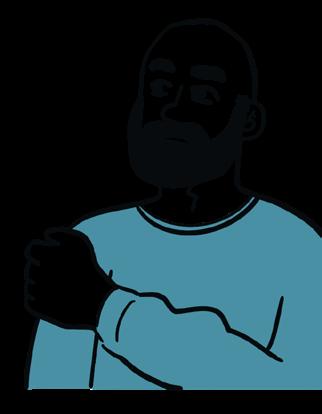
Trust in the police is even lower than for Black and Mixed ethnic groups, and significantly lower than for Asian and White ethnic groups.
40% said that they did not trust the police very much and a further 39% said that they did not trust them at all
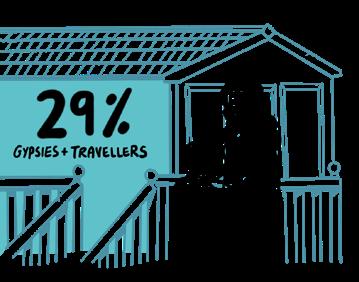
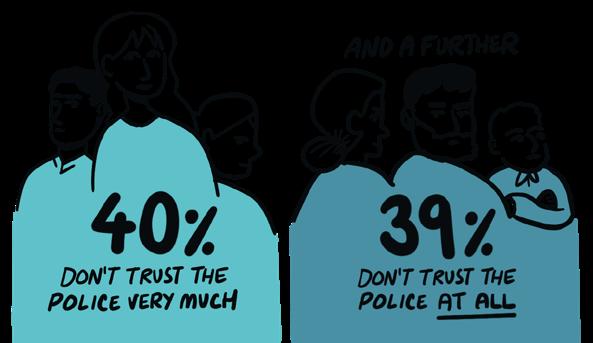
29% tended to agree or very strongly agreed that the police in their local area would treat them with respect if they contacted them for any reason. This is three times fewer than in the general population where 87% believed that they would be treated with respect (ONS 2020).
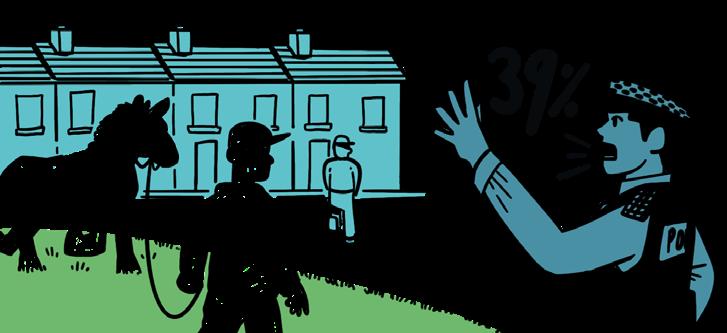
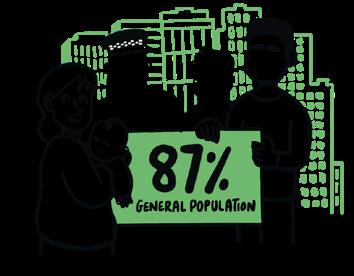
39% said they had been unfairly stopped, questioned, physically threatened or abused by the police and for 82% this was due to their ancestry, race or physical appearance.
Only a minority of Gypsies and Travellers were involved in crime as offenders.

Gypsies and Travellers tend to commit crime for the same reasons as other ethnic groups. Those serving prison sentences said they had offended because of:

It was sometimes the case that Gypsy and Traveller prisoners had experienced:
• Poor mental health and family bereavements (sometimes by suicide).
• Abuse, violence or neglect when they were young either directly or indirectly (as a witness).
• Not being able to get work because of a lack of literacy and qualifications.
• Being discriminated against and not having legitimate opportunities to succeed.

“I got into a rut, like every day or every two days I’d be buying coke..my family didn’t want nothing to do with me for a couple of years because I was taking drugs.”
(Finbar, Irish Traveller, 20s)
“The English lad I met…he wasn’t a Traveller… As soon as I seen him with all that [gold], I wanted to do that, and it was quick money. So, we were doing house robbing.”
(Mika, Irish Traveller, 30s)
I’m Gypsy, it’s the last thing I say… I just feel tarred by it. I can’t work…We don’t sign on for benefits. I will rob the shop. It’s so long after getting pushed on and pulled off and getting treated like s*** .”
(Jamie, Romany Gypsy, 20s)

Community safety teams need to be proactive to help reduce victimisation of these communities.
Victim support services need training and to do more proactive outreach to support Gypsies and Travellers
A public information campaign to raise awareness of the impact of hate crime on Gypsies and Travellers is needed.
Third party reporting systems should be promoted and enhanced so that hate crime gets reported to the police by a third party organisation that Gypsies and Travellers trust.
Building trust between Gypsies and Travellers and settled communities could be tried using restorative justice Restorative justice means supporting someone who has perpetrated harm to communicate with the person who has been harmed, to understand the impact of their actions, and find a positive way forward.
Police need to be aware that Gypsies’ and Travellers’ actions towards others might be a retaliation against racist abuse.
Gypsy and Traveller Liaison Officers are needed to help police repair relationships with these communities.
Gypsy and Traveller community members need to be involved in Independent Scrutiny Groups to monitor police actions.
